How many kids dream of being a footballer when they grow up? But how many would sacrifice their dreams for family?
Brian Hirst did.
When given the opportunity to break into the first team of his boyhood club, Rotherham United, he turned down the contract to put his family’s considerations first.
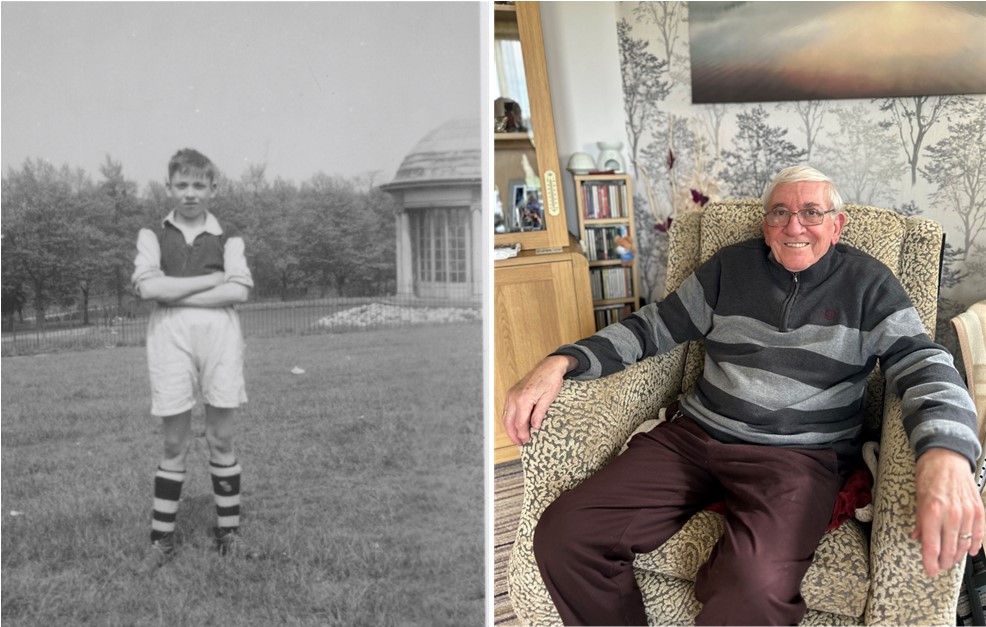
This was in the early 1960s, when footballers’ wages were minuscule compared to those of today thanks to the salary cap. Professional footballers could earn a maximum of £20 a week, just £5 more than the average industrial wage at the time.
There were no lucrative contracts or signing on fees like there are today. They didn’t live in mansions or lead extravagant lifestyles.
Footballers were ordinary guys who often moonlighted as tradesmen.
At the time, Brian was doing an electrical engineering degree and working at Steel, Peech and Tozer where he’d quickly progressed from an apprentice to electrical designer. He’d played football part-time in Rotherham’s reserve squad for a few years having signed aged 18.
But being a full-time footballer had its risks. An injury or a termination of contract would be catastrophic for him, with early retirement leading to limited opportunities.
A few years earlier, he’d made a promise to his father-in-law that he’d always do right by his new wife Beryl. And that was a promise he was destined to keep.
Rotherham United’s manager Tom Johnston gave Brian an ultimatum: sign a full-time contract or never play for Rotherham again. He chose the latter.
“Family always comes first to me. I’ve no regrets about not signing a full-time contract. One or two players have asked me if I wish I’d have signed, but I don’t. You can somewhat detach yourself from reality as a professional footballer, even in those days,” says Brian, now aged 83.
His career at his hometown club might have been short-lived, but he’s been blessed with some great memories of the good old days.
One of his proudest moments is walking back home from Danny Williams’ shop on Doncaster Gate wearing his new Rotherham United blazer in the summer of 1958 – the 18-year-old lad beaming with pride at having signed for the reserve squad to fulfil a lifetime ambition.
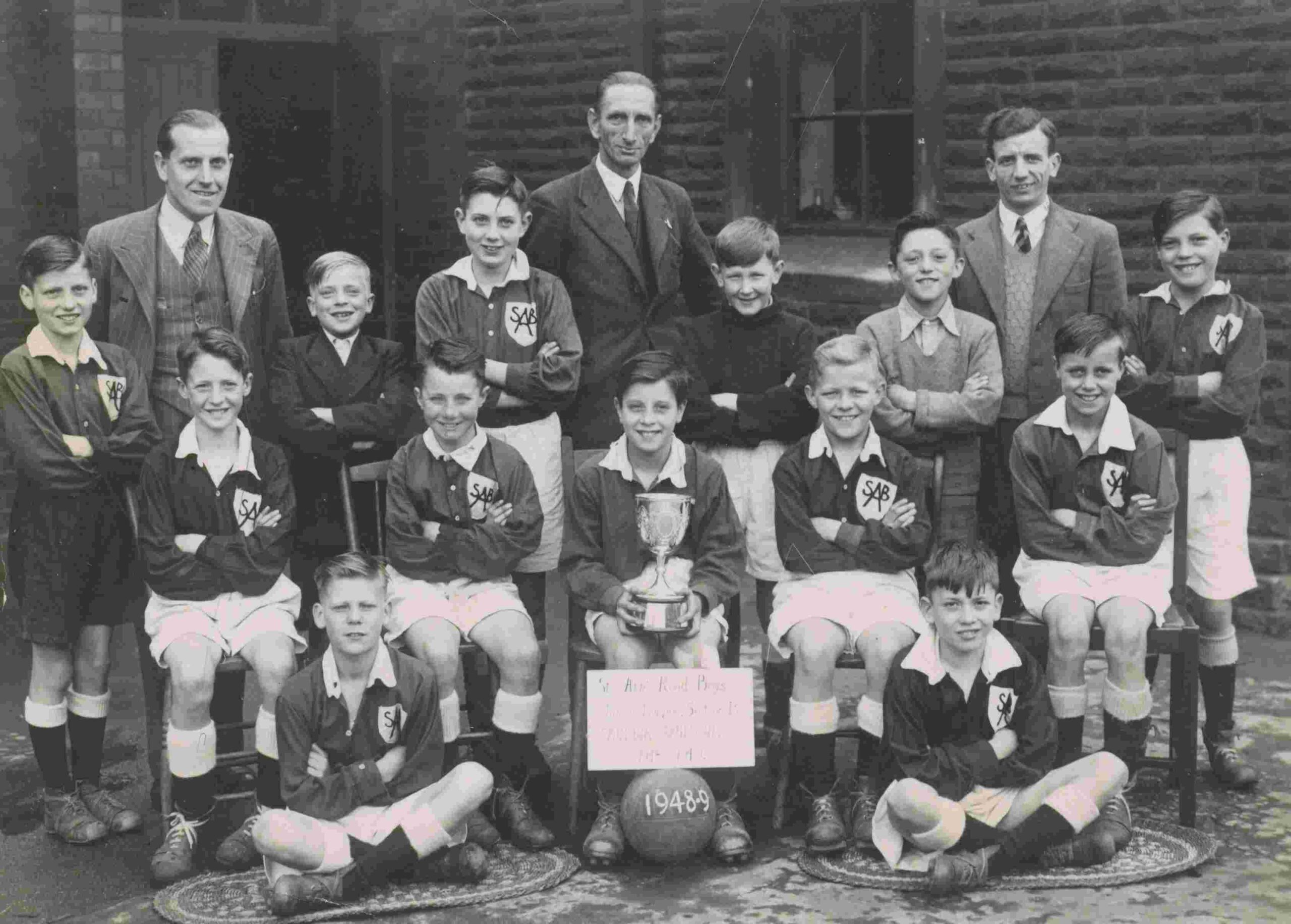
Ten years previous, he’d broken the school record at St Anne’s Road Boys School having scored 32 goals in the season. He was playing in the under 11s side at just eight-years-old.
“It was just after the war when money was still tight. I remember the team had these black shirts made by players’ mothers from the blackouts we had up throughout the war.”
Brian’s father Ted had the biggest impact on footballing ability, but also knew what it meant to sacrifice everything for family. Ted was a keen footballer and was at Chelsea when WWII broke out. He was called up for National Service just six weeks after Brian was born in September 1939, overshadowing any joy felt by first-time parents Ted and Renee.
But Brian didn’t meet his father until he was almost eight, after Ted was held as a Japanese prisoner of war for four years.
“Every time the telegraph man came past the house, we thought Dad had died.”
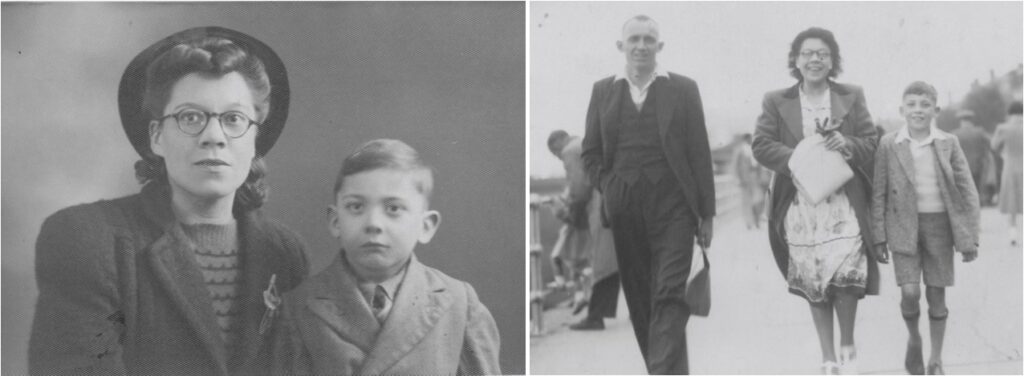
It was an unsettling start to life for a young Brian. But he grew up in a loving home, a two-up two-down on Eastwood Lane in Rotherham town centre. His maternal grandmother lived with Brian and Renee, after her husband died aged 43 from complications of asthma.
“I was the only child at school who had a mam and a mother. But I always called her mother as that’s what my mum called her.”
Brian also regularly saw his dad’s parents who lived on Midland Road at Masbrough. His summers were spent on holiday in Kent with Grandma and Grandad Hirst or looking after the donkeys in Clifton Park getting paid in ride tickets.
Thankfully, Ted survived his traumatic experience. After the war, he went into rehabilitation at a civil resettlement unit in Scotland before returning to Rotherham in 1947.
“When he came home, my dad devoted all his time to me. The first thing he said to me was ‘Get the ball out, sunshine. We’re going to Clifton Park.’ He made sure I could use both feet to play football. He’d get me to take the boot off my right foot so it encouraged me to use my left.”
Brian says this is what helped him become a U-man, or utility man, meaning he could slot in anywhere on the pitch.
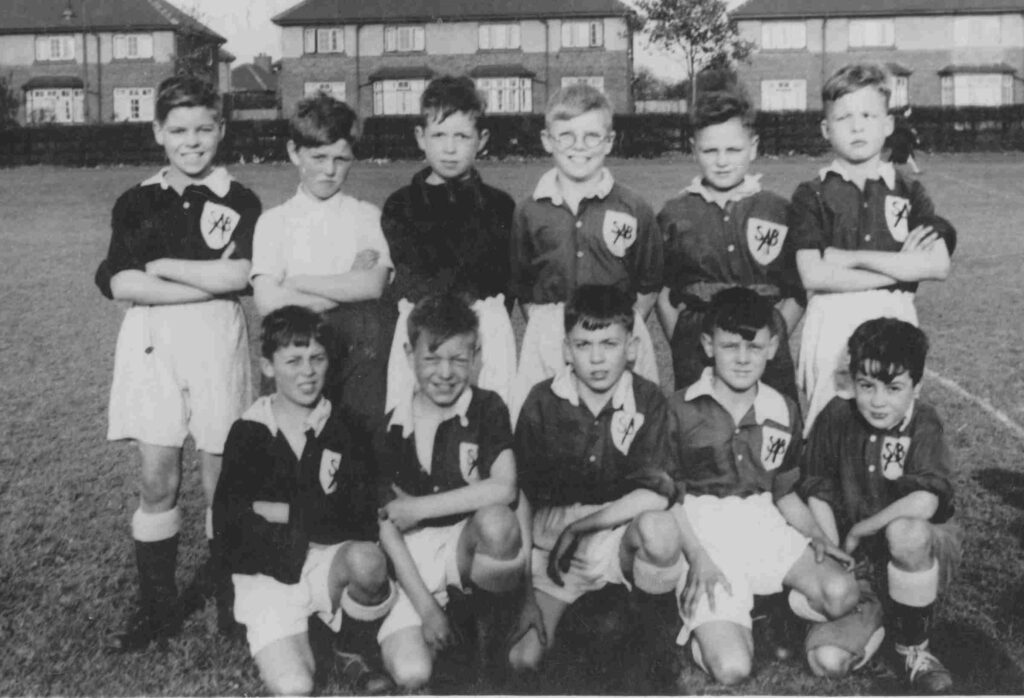
He was very sporty as a child, being on the school’s swimming and running teams. But he was also a bright lad, passing his 11-plus to become one of the first 192 boys accepted at the new Oakwood Technical High School in 1952.
What should have been an exciting time was marred with sadness after Renee was knocked over on Mansfield Road and badly injured.
“It was December 1951 and we’d been on our way to see my auntie who was in Doncaster Gate Hospital and mum sent me in the off license to get a bottle of Lucozade.
“When I came out of the shop, they wouldn’t let me across the road as a woman had been run over by a lorry that had come to a halt on her legs. It was my mum. She fractured her back and both legs.”
At Oakwood, Brian continued to excel in sports. He played rugby for the first team, was swimming miles while training for the Channel swim relay, and was the first Oakwood lad to become captain of Rotherham Boys football team in 1954.
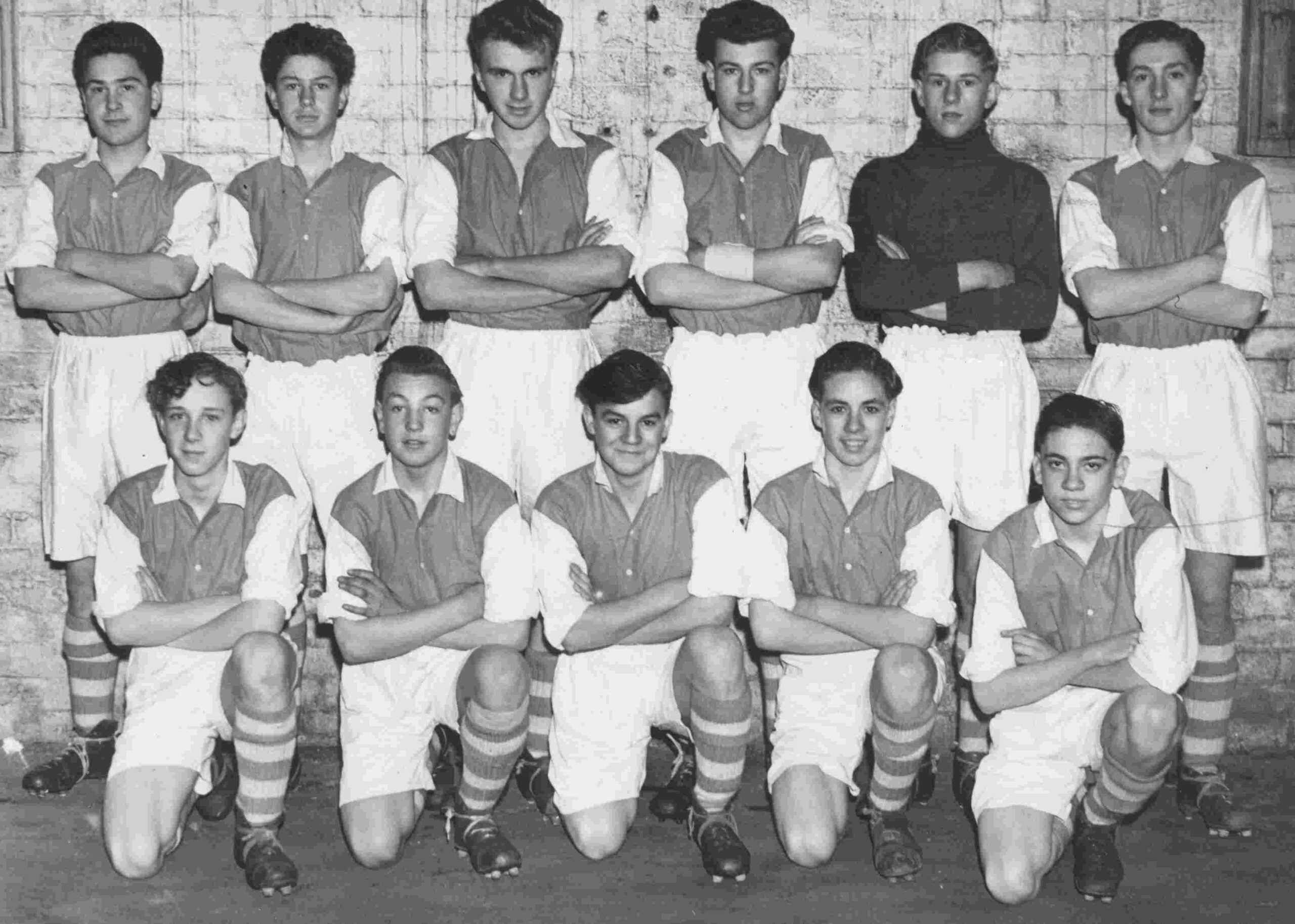
On leaving school in 1955, he became an apprentice electrician at Steelos’ Templeborough site where he joined the cricket team, playing for both the Yorkshire Council and Junior teams.
He’d also begun playing for Rotherham United Juniors, before the call came from Andy Smailes in 1958 to move into the reserves side after four years as a junior.
“We had a cracking side back then. We were in the North Regional League up against other reserve teams from clubs like Middlesborough, Sunderland and Hull. I played defence but could play at centre half or on either wing – all that training with my dad meant I was versatile enough to fit in anywhere I was needed.”
Around the same time as his footballing career had started to take off, he was courting his future wife, Beryl. The pair met at a dance in 1957, were engaged two years later and got married at Whiston Parish Church in October 1960 where comedian Charlie Williams was amongst the guests.
The newlyweds moved to Dovedale Road and went on to have two children, Beverley and Steven, now in their 50s. Over the years, time has been spent with their four grandchildren and two great-grandchildren.
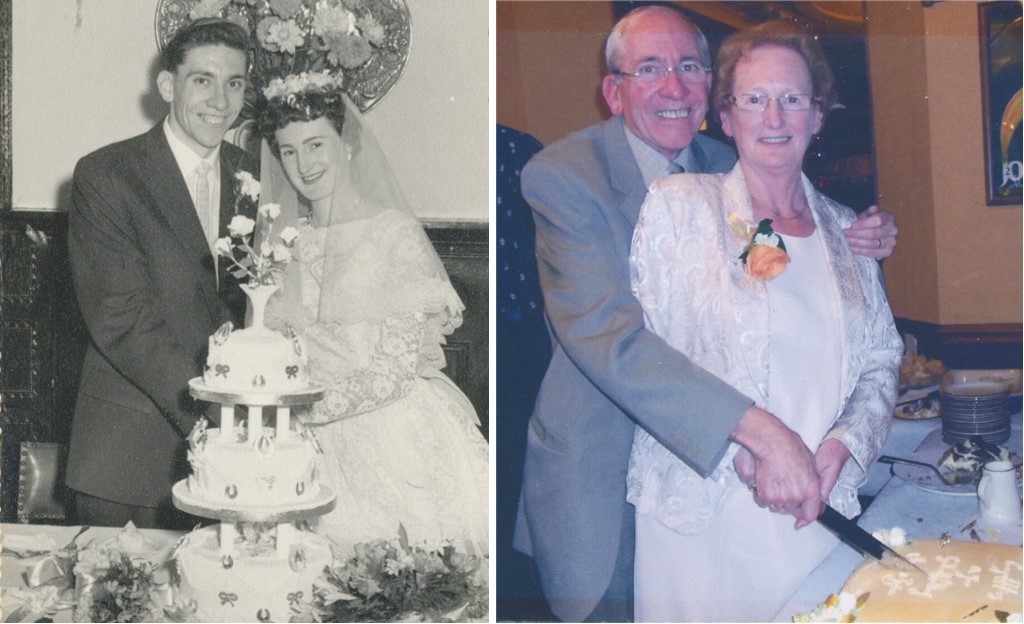
While he may have turned down a full-time contract at Rotherham, that wasn’t the end of his footballing career.
Brian went on to sign for Ilkeston Town, a non-league team that were in the Midland League at the time but paid good money thanks to foreign owners. Players were on £200 a week with an extra £20 for a win or £10 for a draw.
He then moved to Denaby United. But a game against Peterborough – then the top dogs of non-league – saw Brian rupture his ACL during a crunching tackle, putting an end to his playing days.
“It was like kicking a concrete wall. My dad said he could hear it crack from the stands. I was in a full leg cast for seven weeks which really weakened my leg. I’d had a five-figure offer from Huddersfield for the following season and they still agreed to honour the contract. But in pre-season training I knew it wouldn’t be the same, so I had to call it a day.”
Instead, Brian did his coaching badges and began his managerial career with Spurley Hey Old Boys. Under Brian’s lead, they won the Rotherham Sunday League Cup three times on the trot and played internationally in Italy and Holland.
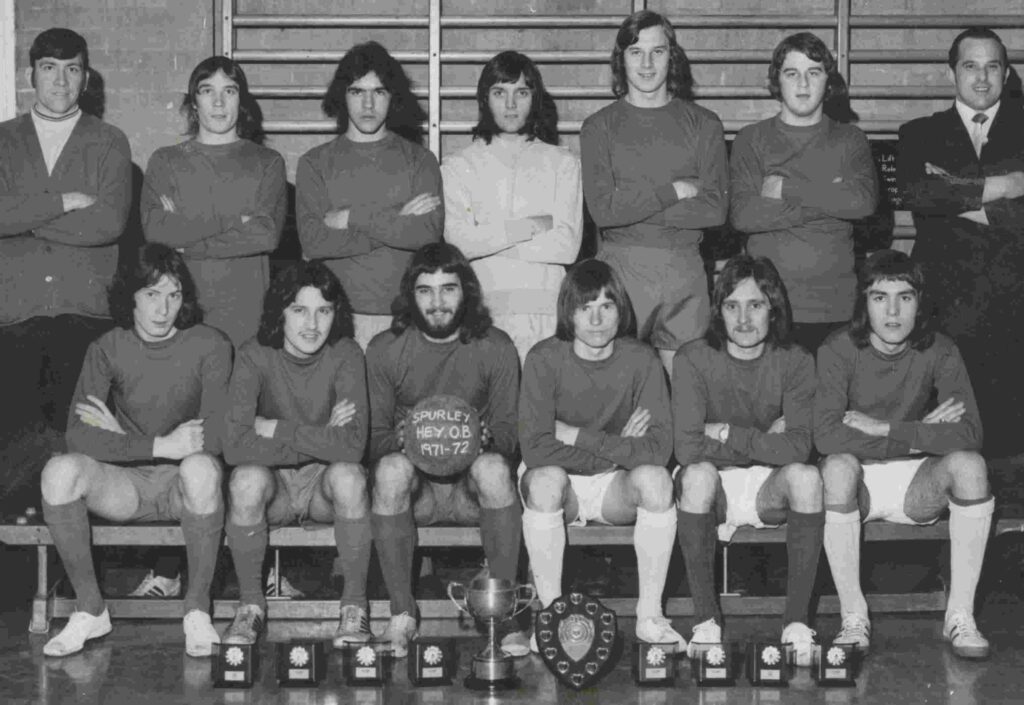
He also worked casually at Leeds United’s academy under Paul Hart, during the era where Leeds won the FA Youth Cup against Man United’s line-up of Scholes, Beckham and the Neville brothers.
“I was at a loose end and did it for the love of it more than anything. I’d watch the opposition and write reports. I did the same thing at Rotherham when Steve Evans was in charge.”
Career wise, Brian took voluntary redundancy from British Steel in 1981 and took the family on a special holiday to Disney World Florida.
After a spell working for an engineering company in Devon, which put too much strain on his young family, he decided to retrain as a careers officer to work with young people. Brian was employed by Rotherham Careers Service to reduce youth unemployment caused by the closures of the pits and steelworks.
Brian eventually retired in the 1990s due to Beryl’s ill health. In retirement, the couple have been fortunate to travel the world, visiting Australia, New Zealand, Singapore and Dubai. He’s swam with sharks in the Great Barrier Reef, taken his dad onboard Concorde, and did a three-week round trip of Europe in his old Ford Anglia.
“I’ve been very fortunate that I’ve always had good jobs, had a wonderful wife and an excellent family.
“My dad used to say to me ‘If you do a job, do it well.’ Can’t has to be in my vocabulary now at my age, but in a normal situation can’t is not a word. Everything is doable if you have the determination.
“You’re only here once. I feel like I’m wasting a lot of time treading water at the minute but I’ve always got the memories to look back on.”






